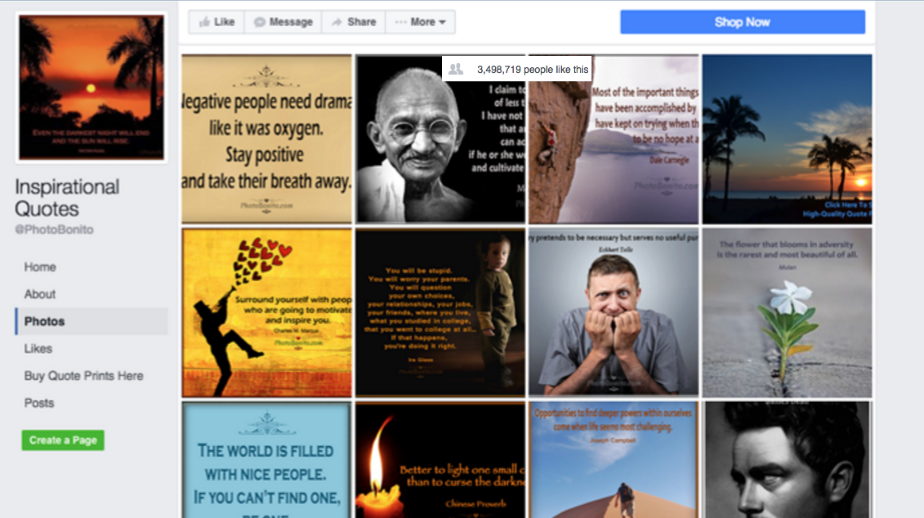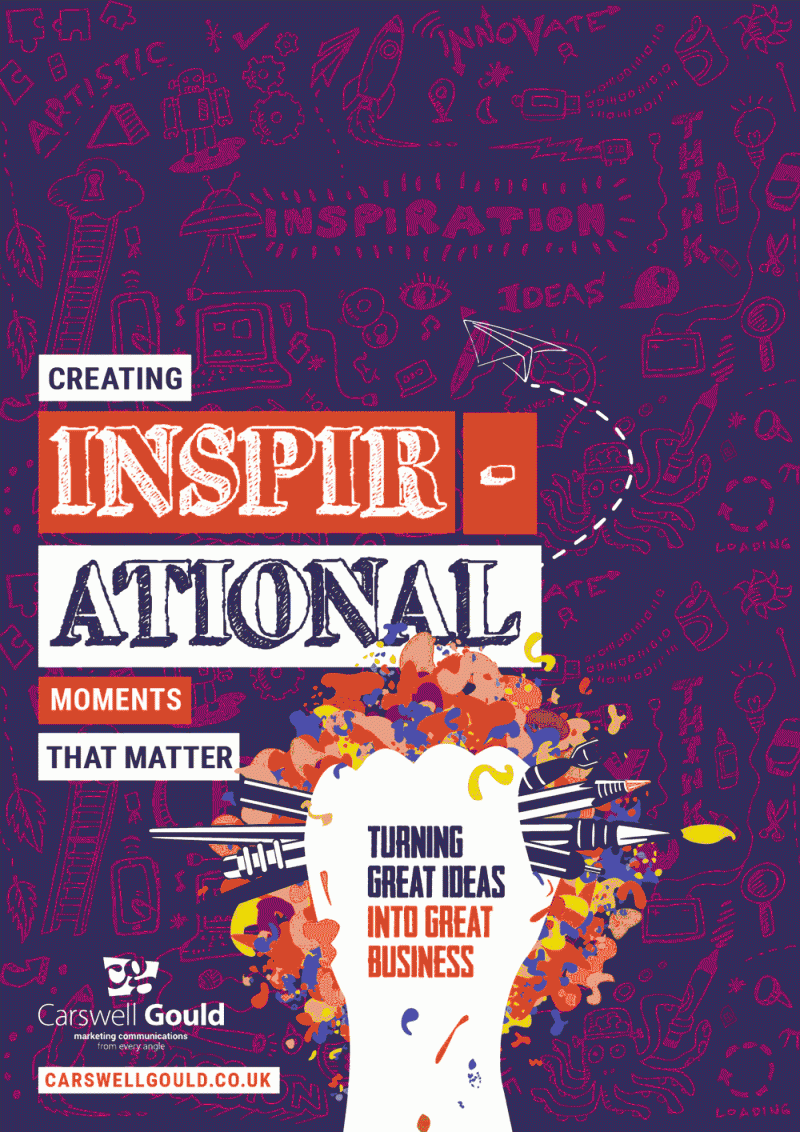

At Carswell Gould, we work with all kinds of clients – from the world’s biggest brands, to unique one-man bands.
As creative director, I’m supposed to be the guy with the ideas – the man that comes up with the goods, no matter what.
Our clients turn to the team and I when they are looking for inspiration. Usually, they know what they need to but they can’t work out how to get there.
The search for better, bigger and more creative solutions can seem endless. I’ve done this job for over a quarter of a century, and in that time I don’t think there’s been a single month when I haven’t rolled into a new client meeting like the dancing monkey to the client services team’s organ grinder.
It often goes a bit like this:
The good news is that I no longer panic at times like these. To be honest, it’s what I get up for in the morning for. I love it.
That said, it is at moments like these that I have come to appreciate the importance of inspiration.
The need to think on your feet is one thing, but unless the clouds part and I have a moment of inspiration at exactly that point, it’s unlikely that the crowded room will leave super excited about what we are going to do for them (which is always our aim).
The need to be able to respond to a problem or a brief and have a moment where we can see a better way, a new solution, a great idea is key to my work and I believe the team and I are very good at it.
However, I have rarely wondered, until now, how we are able to do this with continued success. Or, in which situations we are more likely to come up with the goods.
More interesting to me is why, in those tough times and dark days, we could not find the right answer – that moment of magic.
This got me thinking about the importance of inspiration, so I decided to search for its source.
So what does inspiration mean? I found the following definitive:
This reverent and powerful origin means that inspiration is often thought about as a magical, mystical, or even religious process.
We see examples of this view a lot in everyday life, with motivational quotes on social media, in films, books and on TV.
This is not inspiring to me. Instead, it reduces the idea to a greeting card sentiment that resonates with little impact on my life.
I am far more interested in exploring how a sudden brilliant or timely idea – a moment of inspiration – is formed. I, like many, want to find a way to create more moments of inspiration. I want to understand how these sudden moments of brilliance occur and work out what you need to make them more likely.
Creative directors aren’t the only people who need inspiration. The search for ideas is the same in many walks of life: accountants, teachers, mums, video game developers, business owners, nursery staff, leaders of commerce and doctors all hope for moments of inspiration – as do most people.
And I can say that with some confidence, because we asked them.
We set ourselves the challenge of obtaining the personal views of where people get their inspiration from day-to-day, from at least 100 respondents.
We used social media, face-to-face meetings, emails and more to gather answers to the question ‘Where do you get your inspiration from?’ – and the answers came from all walks of life.
With 110 respondents, we were able to group them into some loose categories. Some answers were insightful, some funny – and some not very helpful at all.
Phil, Carswell Gould’s web team lead, gets his inspiration from Kanye West:
While other respondents, including Richard Branson, who got in touch with our marketing intern Nathan, find inspiration in their work and passions:
The answers varied greatly:
However, when looking at the data en masse, we started to find some interesting patterns to help us on our quest to define the source of inspiration.
This data allowed us to determine words people most commonly associated with driving inspiration.
We were also able to scrutinise the responses by age, seniority, location and job, among other groupings:
As well as this, we could group the 650 words we received into themes. This meant we could ascertain what our test sample of people most commonly depend on when seeking inspiration.
For thousands of years, people far more intelligent than I have offered explanations for inspiration.
The primary research, our own experience of creating ideas at Carswell Gould and the learnings we have made so far in this project all point towards a concept called neuroplasticity.
Your brain continues to form new connections and neural pathways even into adulthood – which, prior to the 1970s was not even thought possible.
When you make a new connection between two ideas, it's not just a metaphor. Your brain is literally restructuring itself to accommodate new processes.
The more plastic your brain is, the more you're able to form creative or inspirational thoughts and ‘Eureka’ moments.
So rather than being the mystical occurrence, a gift from on high or an unrepeatable fluke, the moment of inspiration is in fact a simple, natural, physical process that is as human an act as any other.
For want of a better expression, it is a bit like going through your daily motions. That’s right – I am comparing it to going to the loo.
While you can’t make it happen on command (I hope), you can and should try and become regular. The more regular you are the better.
Many sources offer recommendations for how you can encourage higher levels of plasticity in your brain. Here is a small selection:
The list of ways to increase the neuroplasticity of your brain can go on and on, but they all have a similar theme: do things with your brain that exercise it.
Your brain isn't going to carve out new pathways when it isn't being challenged to do so. It's tough work, and your brain can get tired just like any other muscle, but if you want to increase your overall chances of putting two and two together to make magic, this can help.
My rather elaborate study has suggested everyone can be inspired by pretty much anything, but that there are ways to increase the likelihood.
Our research gave us some good clues about what you need for inspiration but to take it further, here are the things I’ll be doing more of as I continue my ongoing search:
I hope this will encourage you to explore your own recipe for more inspiration.
If you agree with me that the best progress comes from those special moments of inspiration, then I urge you to spend a little time thing working out if you have the right ingredients to make it happen.
We’re planning on turning this into an even bigger project to explore and share personal views of inspiration in more detail. If you’d like to be involved, get in touch with me today.
If you would like to discuss how Carswell Gould could help, our team of experts are keen to chat. Fill in your details below and we'll be in touch shortly.